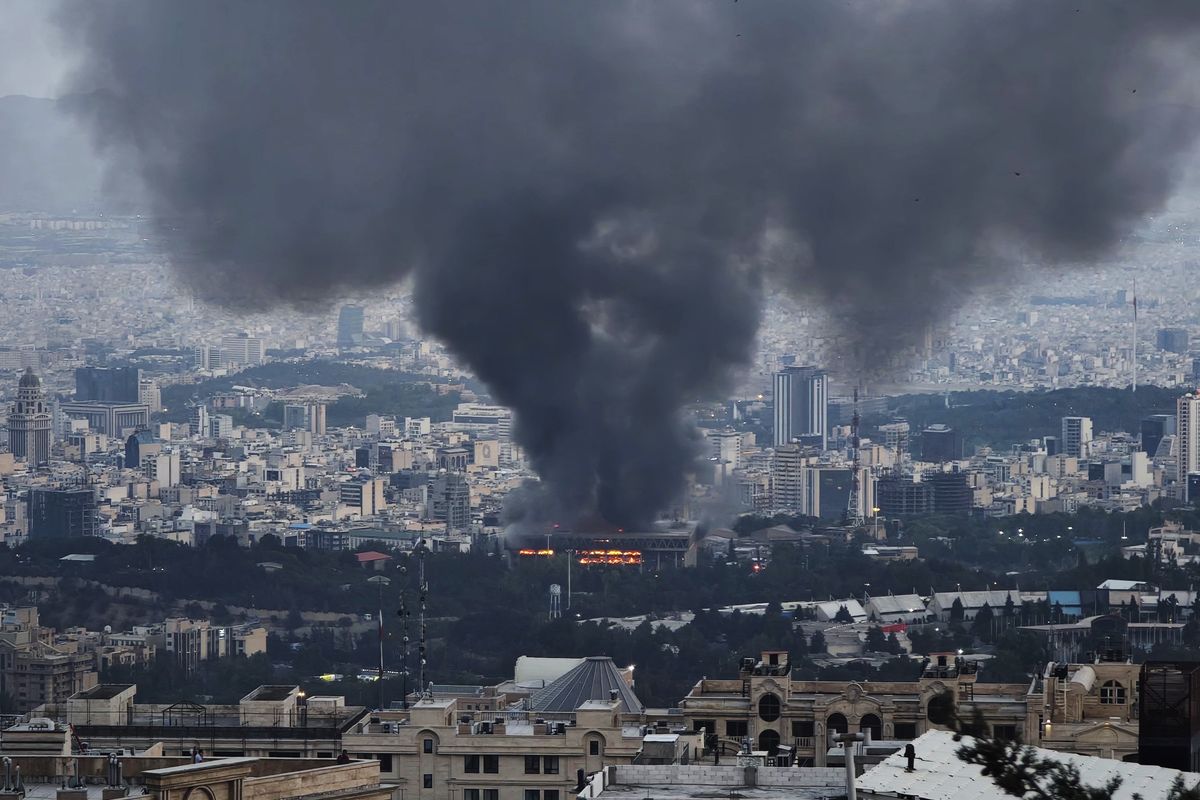OPINION — We will never forget the 2,983 men, women, and children killed in the September 11, 2001, attacks on the World Trade Center, the Pentagon and UA Flight 93 – and the February 26, 1993, bombing of the World Trade Center. We owe it to these innocent martyrs that this will never happen again. Unfortunately, there are rogue states and terrorist organizations that continue to view the U.S. and its allies and partners as the enemy.
In 1998, Al Qaeda leader Osama Bin Laden declared that acquiring and using weapons of mass destruction was his Islamic duty and that included attempting to purchase or produce nuclear weapons.
Just after midnight on September 6, 2007, Israeli F-15s entered Syrian airspace and bombed a nuclear reactor at Al Kibar, Syria. Seven months later, the U.S. confirmed that Al Kibar was a nuclear facility, despite Syria’s denial and efforts to clear the site, with the IAEA confirming in 2011, that Al Kibar was a nuclear reactor.
What Israel destroyed was a graphite-moderated nuclear reactor, like North Korea’s nuclear reactor in Yongbyon. In April 2007, a foreign liaison partner had briefed senior U.S. officials of their discovery of this nuclear reactor and North Korea’s assistance in the construction of the reactor. This clearly was a case of North Korea providing technical and material support to Syria for the construction of a nuclear reactor for one purpose – nuclear weapons. Fortunately, the reactor was bombed just prior to going operational.
Cipher Brief Subscriber+Members enjoy unlimited access to Cipher Brief content, including analysis with experts, private virtual briefings with experts, the M-F Open Source Report and the weekly Dead Drop - an insider look at the latest gossip in the national security space. It pays to be a Subscriber+Member. Upgrade your access today.
Former Vice President Dick Cheney, in his memoir In My Time, states that President Bush, on the morning of October 9, 2006, after North Korea’s first nuclear test and when the nuclear blast was detected on October 8, went before the cameras in the Diplomatic Reception Room to condemn the test and issue a warning: “The North Korean regime remains one of the world’s leading proliferators of missile technology, including transfers to Iran and Syria. The transfer of nuclear weapons or material by North Korea to states or non-state entities would be considered a grave threat to the U.S., and we would hold North Korea fully accountable for the consequences of such action.”
North Korea clearly violated – by proliferating nuclear technology and materials to Syria, a state sponsor of terrorism—President Bush’s red line after their first nuclear test in October 2006. There were no consequences for this blatant nuclear proliferation.
Al Qaeda, after the death of Ayman al-Zawahiri, the successor to Osama Bin Laden, is reportedly recruiting new fighters and seeking to recover its external operations capability. Many of the potential successors to Zawahiri reside in Iran and most likely view the Taliban takeover in Afghanistan as a positive development. Al Qaeda and their affiliates will continue to view the U.S. and its allies and partners as the enemy and they – and others, like the Islamic State – will continue to seek weapons of mass destruction.
It's not just for the President anymore. Are you getting your daily national security briefing? Subscriber+Members have exclusive access to the Open Source Collection Daily Brief, keeping you up to date on global events impacting national security. It pays to be a Subscriber+Member.
The first nuclear security summit was held in Washington, D.C. on April 12-13, 2010, with forty-seven national delegations (and 38 heads of state, to include China) participating, with the goal of addressing the threat of nuclear terrorism by minimizing and securing nuclear materials and enhancing international cooperation to prevent the illicit acquisition of nuclear material by non-state terrorist groups. Subsequent nuclear security summits were convened in Seoul, South Korea in 2012, the Hague, Netherlands in 2014 and Washington, D.C. in 2016.
As Russia’s invasion of Ukraine continues, with Russia threatening to use tactical nuclear weapons, and media reports of North Korea providing Russia with artillery shells and rockets, in exchange for energy assistance and help with their nuclear and missile programs, now would be the time for the U.S. to convene another nuclear security summit.
Indeed, this would be the time for all nuclear weapons states and non-nuclear weapons states with civilian nuclear energy capabilities to come together to provide assurances that nuclear weapons and fissile materials (for dirty bombs) will be protected, with assurances they would never be sold or provided to rogue states or non-state terrorist organizations.
This would also be a good time to communicate directly with North Korea that we will never forget what they did with Syria: Providing a state supporter of terrorism with a nuclear reactor to produce nuclear weapons. North Korea’s leadership should be reminded that we monitor their actions closely and there would be consequences if they sell or provide a nuclear weapon or fissile material to a rogue state or non-state terrorist organization.
As we pause this week, to think about all those innocent people who were brutally killed on September 11, 2001, and February 26, 1993, let’s ensure that we are doing all we can to prevent another large-scale terrorist attack.
This piece by Cipher Brief Expert Ambassador Joe Detrani was first published in The Washington Times
The Cipher Brief is committed to publishing a range of perspectives on national security issues submitted by deeply experienced national security professionals.
Opinions expressed are those of the author and do not represent the views or opinions of The Cipher Brief.
Have a perspective to share based on your experience in the national security field? Send it to Editor@thecipherbrief.com for publication consideration.Read more expert-driven national security insights, perspective and analysis in The Cipher Brief













